The Amino Algorithm
by Jacqueline Berkman
 he cameraman counted down from 5, the lights went up, but it was only after the host crooned “You’re watching Dr. Morgan” and the Caribbean music was cued that Jordan Bickwell’s lower back really began to sweat.
he cameraman counted down from 5, the lights went up, but it was only after the host crooned “You’re watching Dr. Morgan” and the Caribbean music was cued that Jordan Bickwell’s lower back really began to sweat.
He had not felt like this on the ride over. On the contrary, his confidence had inflated like a balloon with each skyscraper that blurred past, and by the time he arrived curbside in front of the studio he was bloated in his assurance that he had figured this whole mess out. He was nothing but show tunes and smiles in line for his VIP badge, and after receiving the message that Josephine was in hair and makeup, he strode over to the green room with adrenaline-fueled purpose and a head full of vague sports metaphors: he was the coach and she was his star athlete, stakes were high but they had prepared extensively, and all there was left to do before the show went live was to have one final “go get ‘em” talk and a recap of everything they had worked so hard to prepare.
But as soon as one of the distressed hairstylists let him in he could see that Josephine, hopped up on caffeine and gesturing excessively at no one in particular, was in no mood to rehearse. In fact, she didn’t seem in the right mind to be out in public, let alone on live television. And so he left the green room and made way his way to his assigned seat third row from the front with the sinking feeling that the only thing gained from the impromptu meeting was a behind the scenes look at his author at her truest and basest self: hysterical and doused in layers of hairspray.
It was for a few anxious moments that he sat like this until that damn Caribbean music was cued and Dr. Morgan, hands behind his back, leisurely made his way across the stage amongst the uproar of applause. Once he arrived at a spot deemed suitable, he stopped and stared into the camera, in a way that could only be described as soulfully. “Hello, everyone,” he said, the wave of his voice rising up against the cacophonous amount of applause. His timing down to an art, he waited until it died down to resume speaking again. “Hello, and thank you for joining us today. In today’s episode, we are exploring an industry that we encounter regularly; yet neglect to truly reflect on. The self-help industry: how helpful is it? The launching point for this discussion will be the newly released self-help title The Amino Algorithm by nutritionist Josephine Williams, which makes the controversial argument that much of the obesity and weight issues in this country are the result of cravings which can be curbed by amino acid supplements.”
Jordan took a deep breath, the buzz of an incoming text jolting him. The message said, only, “Let’s hope Dr. Morgan doesn’t mispronounce the names of any of the supplements.” Gritting his teeth, Jordan put his phone back in his pocket. As if he didn’t have enough to deal with, he now carried the additional burden of knowing full well that among the thousands of viewers tuning in to catch the full story behind The Amino Algorithm, a book he had once been proud to call himself the editor of, his father, Dr. Richard Bickwell, was among them. The main difference was that unlike the rest of the viewership, who in Jordan’s mind remained faceless entities solely representing TV ratings, his father was a visceral presence, without a doubt reclining on his leather couch in his monogrammed pajamas, invigorated by spite and reveling in the chaos that was about to unfurl. And also unlike the rest of the viewers, Jordan had to take the train up to the suburbs directly following the show and face his father at his 75th birthday party.
“As many of you have likely already heard” Dr. Morgan said, cutting into Jordan’s reverie, “The Amino Algorithm was brought to national attention by Stuart Jimenez from Allentown, Pennsylvania, whose qualms with the medical advice herein has gone viral. With a twitter page that surpasses 100,000 followers and a blog drawing nearly 300,000 unique visitors just this past month, Stuart has proven that he’s a force to be reckoned with.”
Jordan shifted in his seat. The rehashing of the statistics and the mention of Stuart’s name prompted another wave of panic. He took a deep breath and tried to reassure himself, once again, that he and Josephine were more than prepared for this. But the self-soothing that had been so effective during the cab ride no longer worked under the harsh glare of the studio lights, because the fact of the matter, no matter which way you sliced it, was that Stuart Jimenez was a profoundly unsettling creature. A self-employed electrician by day and a savvy social media strategist by night, Stuart’s qualms with The Amino Algorithm had originated with a negative Amazon review less than two months before and, in the handful of weeks that followed, catapulted into a full on anti-self help social media campaign, throttling Jordan’s life in a way he had been wholly unprepared for.
“Without further adieu,” Dr. Morgan said, “Let’s bring Stuart on stage to tell his side of the story. “Stuart?”
The applause rose again, and in Jordan’s flustered state it took him longer than it normally would to register the physical presence of Stuart himself. Immortalized through his fiery tweets and blog posts, Stuart in person was, quite simply, a disappointment to the imagination. 5’6 was a protruding stomach, receding hairline and wire-framed glasses, Stuart did not look like the media titan that he was, and when he waved at the crowd with a gentle flip of the hand Jordan tried to reassure himself, momentarily, that the man’s physical mediocrity surely diminished his online potency. It had to. People were visual, if nothing else.
“Welcome, Stuart,” Dr. Morgan said, gesturing to an empty chair on his left. “Have a seat.”
Stuart settled into his plush leather seat and waved once again at the crowd, a wide grin plastered across his face.
“So,” Dr. Morgan said, settling into his standard repose, leg crossed at the knee and right hand scratching his clean-shaven chin. “How’s it going?”
“Doin’ alright,” Stuart said, his voice booming with a self-righteous gravitas. And Jordan was struck once again by the randomness of it all, thinking of all of the books he had worked on that had seemed far more viable candidates for the Dr. Morgan show than this. Well, really one in particular. Sensible Slimdowns.
Sensible Slimdowns had gone on sale only eight months before, and had gnawed at Jordan in a way that, given all of the current drama rocking his world, could only be seen as a kind of foreshadowing. A cookbook written by former supermodel turned new age foodie Moonflower Jardine, Sensible Slimdowns had received a noted amount of flak from a Galaxy Post columnist who made the claim that having a supermodel pen a cookbook “only continued to perpetuate the female psyche’s troubled relationship to food.” The comment, pretentiously academic and lacking in sources, had ignited a debate in quite a few feminist blogs, and the whole experience had thoroughly gotten under Jordan’s skin, as it was the first time he had dealt with the wildfire of the internet and its potential to burn him.
Though perhaps what stung even more was the subsequently spectacular argument he had with his father about it. The two, out to dinner at a sushi restaurant in Soho, were always contentious on topics of work anyway, as his father repeatedly insinuated that he didn’t approve of the “new age hogwash” Jordan brought into the world, and Jordan, though he never said it aloud, constantly found his father, with his clinical asides and constant gripes about insurance companies infringing on his personal space, to be out of touch and condescending. Why they ever even got together in the first place was unclear except to say that, in those gaps between conflicts there could sometimes be a shared joke, a common reminiscence, something resembling closeness between them. But it managed to get obscured and tossed aside easily, as there were so many catalysts that could spark discord again. And Sensible Slimdowns was certainly a catalyst.
Jordan recalled their dispute clearly: after describing what the Galaxy Post columnist wrote and the negative coverage picked up by the feminist blogs, his father guffawed between sips of sake and said “This is what you spend your time thinking about? For Christ’s sake, there are actual problems out there,” before going on to say that he sided with the writer, supermodels had no business writing cookbooks, and what was his son doing publishing this crap anyway. “Is this the value of a Yale English degree?” he finally said, and the comment, though not entirely surprising, threw Jordan off balance, and in a reactive outburst of spite he threw a wad of cash on the table and left without saying goodbye. He hadn’t spoken to his father for at least a month after that, waiting for his anger to diffuse in much the same way he waited for the snarky comments surrounding Sensible Slimdowns to dissipate.
It had been a trying time, and who could have possibly known that it wouldn’t even compare to the tidal wave of problems that would plague him when he moved forward with the The Amino Algorithm?
Back up on stage, Dr. Morgan got down to business. “Stuart, let’s begin by mentioning your latest YouTube video, ‘Amino Acid Supplements and Other Dieting Failures,’ which has reached nearly one million views. Can you tell the American public, some of whom haven’t been following the saga, about your rising status as thought leader?”
“Sure,” Stuart said, clearing his throat as he segued into his presentation. “Look, let me just begin by saying that I’m not perfect,” he said, with the confidence of someone who had recently graduated from a media coaching program. “I like Jack in the Box, and some nights I can get through three beers easy. Which was all good and fine until my wife started complaining about my gut, telling me I needed to get in shape. So I started jogging and dieting but it wasn’t really doing much, if you want to know the truth, and it’s hard to keep that up if you’re not even noticing any results to begin with. So anyway, that’s kind of how things were going until a couple months ago, when I heard Josephine Williams being interviewed on the radio about The Amino Algorithm. When she described how people would benefit from her program, and how all of the supplements she advocated for were totally natural, something clicked in my head, like, wait, maybe this could actually help me.” Stuart paused for a beat and took a breath, looking earnestly into the camera, before continuing. “So I went out and bought the book and started talking one of the recommended supplements and within just a couple days I start feeling sick.”
Jordan’s phone beeped again with an incoming text. His father. Well, what was the poor guy expecting, to get better? Jordan sighed.
Following their month long separation after the Sensible Slimdowns blow up, tensions between Jordan and his father subsided as his father’s critical focus turned away from Jordan’s line of work and more towards bemoaning the state of healthcare as a whole. As the majority of his colleagues switched from private practice to take jobs in hospitals, he spent many a dinner conversation ranting about how, as the insurance companies came crawling in like so many soul sucking tax collectors, all of the autonomy of private practice was growing obsolete, how thank God he’d get to retire before he’d have to call himself anyone’s employee. And while it had been a welcome relief to no longer occupy his father’s number one grudge with all that was wrong in the medical world, the chasm between the two of them had noticeably widened again in the last couple of weeks leading up to the Dr. Morgan taping, his father’s clipped asides about his son’s foolishness aligning himself with a half-brained pseudo doctor appearing by the dozen in passive aggressive text messages and emails. Jordan could only wonder what the live show would provoke in his father, and how he would likely be the brunt of it as soon as he came over for the birthday party.
Back on stage, Dr. Morgan’s eyebrows arched in response to the not-new news that Stuart had become sick as a result of taking these supplements. “Stuart,” he said, “tell the audience what some of your symptoms were after you started feeling sick.”
“I just felt like garbage,” Stuart said. “I was getting dizzy spells, feeling super lightheaded. And I got painful cold sores on both sides of my mouth.”
“That sounds terrible,” Dr. Morgan said.
“It was terrible,” Stuart said. “Once I finally was able to get in to see a doctor, which, let me tell you, was no easy feat, he told me that I had had a herpes outbreak induced by the amino acid supplements.” The audience gasped. Stuart, undoubtedly versed in the importance of timing, gave it a few beats before he pressed on. “Apparently, the supplements so heartily endorsed in The Amino Algorithm can speed up or worsen viral outbreaks.”
“And there was no mention of that in the book?” Dr. Morgan said, glossing over the potentially awkward backstory of Stuart’s longstanding struggle with herpes.
“No,” Stuart said. “I mean, there was a general medical disclaimer, but nothing about these side effects.”
Dr. Morgan nodded vigorously. “So,” he said, “Would you say that’s when you started reaching out to express your opinions via social media channels?”
“Yes,” Stuart said. “I mean, I was mad that Ms. Williams could leave out so many important details, that the entire marketing team promoting the book could leave out so many important details. As a customer looking to lose weight and without much knowledge into the world of diet supplements, I felt that I had been manipulated, and that using social media was the only way I could really get my two cents in.”
With that, the audience burst into a hearty applause. Jordan craned his neck on both sides in an attempt to identify the source, but it was futile, because it came from everywhere and all at once.
“You present a compelling case, Stuart,” Dr. Morgan said. “But in order to gain a well-rounded perspective on the issue let’s bring Josephine Williams, author of The Amino Algorithm, up on the stage. Josephine?”
The transitory Caribbean elevator music was cued up once more and Josephine walked onstage, her frizzy hair coiffed with hairspray and her body turned away from the cameras as if they were unwanted paparazzi. There was a much lighter level of applause upon Josephine’s entrance, and, to Jordan’s mortification, several boos. Jordan thought back to all of their conversations, to her nervous state in the green room, and he held his breath and desperately hoped that she would not crack.
“Welcome, Josephine, and thank you for joining us,” Dr. Morgan said.
“Thank you for having me,” Josephine said as she took the seat on Dr. Morgan’s right side, her teeth clenched into a small, hard smile.
“Now, Josephine, I’m assuming you’ve been hearing the discussion that has been raised out here, in which Mr. Jimenez recapped his unfortunate side effects after consuming amino acid supplements endorsed in your book, as well as his frustration about the larger implications of the book itself. Do you have anything to say in response to all of this?”
Although she looked composed enough, Jordan saw Josephine intake a massive gulp of air and could practically feel her knuckles turn white as she gripped onto the arms of her chair. Seeing her like this, every effort to remain placid despite signs of bursting like a rattling tea kettle, made Jordan think back longingly to the year before, when the book had only been a question mark of a proposal, still ephemeral enough to dismiss. Why had he insisted on it? Why had he proclaimed to the editorial team that Josephine Williams was a genius, that The Amino Algorithm was the next big diet revolution? Why did anyone actually listen to him?
“To answer your question, Dr. Morgan, I have a lot to say in response to Stuart’s qualms,” Josephine said, her back ramrod straight as she rotated between looking at Dr. Morgan and the camera. “First, I want to thank Stuart here for purchasing my book, and I apologize sincerely for any unfortunate side effects that he experienced. But I can assure you that all of the claims made in my book have been extensively researched, fact checked, and meticulously edited, thanks in large part to my editor sitting right over there, Jordan Bickwell.”
Jordan had not expected that. The spotlight beamed down on him, aggravating his back sweat once again as he silently fumed at the thought that his face was now on thousands of television screens all over the country, not the least of which his father’s. In that moment, Josephine was not his hapless author but Lady Macbeth, a dreadful, conniving bitch determined to sink him down to tragic Shakespearian depths along with her. As soon as the lights swung away from him back onto the main stage, he drooped into his chair, bitterly recalling the half brained epiphany he had way back in high school when he decided he wanted to be a book editor in the first place.
He had been fourteen, on summer break before tenth grade, sitting in the beige waiting room of his father’s medical office, of all places. He had begun going there during the long, blank stretches of his summer days because he enjoyed the lunch breaks when his dad took him out for cheesesteaks or gnocchi and the car rides home when they listened to Presidential biographies on books on tape, those rare windows of time when his father didn’t have more pressing matters to attend to. And it had initially given him a flush of admiration to sit in that waiting room and observe the people sitting around him, reading outdated copies of Golfers Digest and biting their nails, all united in their quest for his father’s advice. But like the gentle shift of a changing season, his admiration began to give way as he noticed that many of the patients seemed as agitated leaving their appointments as they had walking in, their hands clutching prescription requests and their eyes on the carpet, as if tracking the pattern for the answer to an unresolved question. This was only confirmed one afternoon returning from the bathroom when he overheard a woman on the phone in the hallway saying, “Dr. Bickwell just gave me another round of antibiotics,” before chuckling and adding “well, let’s hope he knows what he’s doing this time.”
The comment, though undeniably tinged with annoyance, seemed innocuous enough, and yet when Jordan returned to the office he felt that things had somehow changed. That the waiting room, once a beacon for legitimacy and answers, had transformed into just another place where people bided their time and accumulated more questions. Any thoughts he had entertained of pursuing medicine began to dismantle as he unconsciously drifted towards a professional path that was low risk, and concrete, with results he could instantly and indisputably see. Which was right around the time that he discovered medical pamphlets.
Up on stage, Josephine, eyes still squinting against the harshness of the studio lights, cleared her throat. “Anyway, before I fully delve into Stuart Jimenez’s concerns, I want to emphasize a point which I believe to be very important,” she said. “I want to reiterate the importance of medical disclaimers.”
Dr. Morgan nodded tentatively. “Medical disclaimers,” he said.
“Yes, medical disclaimers,” Josephine said. “Every book that promotes any kind of medical advice has to have one. If you look at the copyright page in my book, you’ll find it. It reads as follows: ‘this book contains advice and information relating to health care. It is not intended to replace medical advice and should be used supplement rather than replace regular care by your healthcare provider. It is recommended that you seek your healthcare provider’s advice before embarking on any medical program or treatment.’” Josephine looked up at the camera, her face rosy with a defiant flush. “What I’m trying to say is this: my book is based on extensive research, but whenever you propose some kind of medical solution, someone will inevitably have an adverse reaction, and I can’t assume responsibility for every individual experience. I never intended for my book to replace the advice of a medical professional.”
Jordan took a deep breath. This comment was the hook, the baseline for the rest of the rhetoric that he and Josephine had worked to cultivate. They had prepared for this, and all they could do now was see how, on live television, people would react to the stream of logic that followed next.
Though his attention was divided, because even though he knew this moment was crucial, he found himself preoccupied by his memory of first discovering medical pamphlets. He had been sitting in his father’s medical office on another afternoon when he saw them, squashed in between outdated copies of The New Yorker and Good Housekeeping. They were gray and drab with a bold Helvetica typeface on the front that read: “5 Smart Ways to Avoid the Flu During the Winter Season.” Inside, the pamphlets contained practical if not slightly rudimentary tips, such as “Wash Your Hands” and “Get Enough Sleep,” and, after reading them, Jordan felt his stomach churn with acidity and his hands begin to tremble. What bothered him, what irked his fourteen year old heart, inflamed by the possibilities of honors English and George Orwell, was his profound belief that the pamphlets’ idiotic title and depressing presentation was preventing anyone from picking them up and reading them. Back then, nothing could have possibly seemed more preventable.
Suddenly invigorated, he left his father’s waiting room and ran to the drugstore across the street and bought a composition notebook, returning to the medical building once again only to jot down ideas for alternative titles, including ”5 Essential Flu-Fighting Tips for the Winter Season,” “The New and Improved Flu-Fighters Guide,” and “10 Surefire Flu-Fighting Immune Boosters.” He started carrying the notebook around everywhere as if it were an appendage to his arm, jotting down ideas whenever inspiration struck him. He began to cultivate the stance that words were powerful, something he would continue to hold onto as a staff writer for his high school newspaper, while pursuing his English degree at Yale, and throughout his fifteen year career thus far as an executive editor at Birch Tree Publishers. It was a career that, despite the disapproval of his parents, had proved quiet and largely comforting, the conflicts largely contained to the insular world of editorial board rooms, books churning through a predictable nine month cycle only to be released from the womb of their imprint to the increasingly indifferent outside world. It didn’t call for much self-reflection, and Jordan liked it that way.
But all of that changed, of course, when Stuart Jimenez came along.
Under the harsh glare of the studio lights, Dr. Morgan was intent on keeping the conversation on track. “Stuart, I’m curious as to what you think about Josephine’s point regarding medical disclaimers,” he said, turning his head to a precise 90-degree angle to face his guest on the left.
Stuart shrugged. “Honestly, I think it’s crap. Pardon my French,” he said, above the dim laughter of some of the audience members. “I mean, it just seems like something you say on the spot when you’re in a bind.” He furtively looked over at Josephine before continuing. “All I know is, when I was sitting in my car that morning, listening to the promotional interview about the book, the supplements were really positioned as an ‘all natural’ solution for weight management that you could handle on your own. That was the whole appeal for me, that I could manage this on my own without the hassle of seeing a doctor. But, as you know, I did have to go see a doctor. And it was a huge hassle. So that pissed me off.”
This sparked a hooting applause from the crowd. One person yelled ‘hell yeah’ and another yelled ‘I feel your pain, Stuart!” Jordan turned next to him and saw a woman cram a bonbon into her mouth, her face contorting with brain freeze as she licked the remaining pieces of chocolate off her fingers.
Dr. Morgan raised his hand to quiet the thundering applause on the set, and Josephine, straightening her Ann Taylor blazer, cleared her throat once the riotous applause died down. “Look,” Josephine said, her voice muffled by lingering applause, “Look,” she finally said again, her voice firmer. “I’m not a therapist, but after listening to Stuart’s complaints and hearing the vehement response from the crowd, I can’t help but wonder if the real source of everyone’s frustration is not the advice in my book but the state of healthcare in this country.”
With that, as Jordan had predicted, there was a perceptible shift in the air. He leaned forward in his seat, wondering how the crowd would react, how his father, sitting at home, would react. He looked at his phone as if it was a guiding compass, but there were no messages. He dropped it in his pocket, cradled his hands in his chin, and looked intently at Josephine.
Dr. Morgan cocked his head, surveying Josephine as if she were a very engaging pet. “That’s a very interesting claim you make, Josephine,” he said. “Would you care to elaborate?”
“Certainty,” Josephine said, adjusting in her seat so as to get comfortable before her epic diatribe. “When I read Stuart’s original Amazon review covering his grievances with my book, I couldn’t help but notice how it took a couple weeks for him to be seen by a doctor after his symptoms began. And after following him closely on his blog, I was equally disheartened to read about his actual experience seeing a doctor.” Josephine picked up a piece of paper. “I’m quoting Stuart’s blog describing his experience with his doctor at the local medical clinic. He writes, ‘the kid, basically straight out of medical school, just smirked at [me] like [I] was some sort of sucker.’” Josephine turned to Dr. Morgan. “Now, this statement is troublesome for a few reasons. One, it took too long for Stuart to be seen, two, the doctor he saw was young and inexperienced, and three, he was treated with a lack of respect. Now, I would probably attribute this lack of respect to being rushed. In light of our current healthcare system, doctors are increasingly strapped for time as they are pressured to tend to more and more patients, which probably accounts for this young doctor’s brusque manner.” Josephine turned back to Dr. Morgan. “I can’t help but feel that the reason Stuart’s sentiments are resonating so much with the crowd is because many people feel like Stuart, that going to the doctor has become a confusing, bureaucratic hassle, and are therefore shifting their medical needs away from doctors and towards self-help books, like mine. But I have to emphasize once again that no book can replace the advice of a medical healthcare professional. If anything, I hope our discussion today reminds us it is imperative that we as a nation keep checking in about how all of the recent healthcare changes are working, or not working, as a whole.”
At that, a moment of silence washed over the crowd. Even Dr. Morgan, known for his composure and camera-ready retorts, looked caught off guard. And what began as a slow clap from one audience member slowly ricocheted into full blown applause, and Stuart, before secure and composed, likely growing into the idea that he was a beloved media figure, seemed to grow invariably tense as he realized that his moment of glory was slipping away from him. Dr. Morgan cleared his throat, turning his back on Stuart as he faced Josephine. “Well,” he said, his voice raised several octaves, “this conversation has certainty taken a very interesting turn. It’s time for a commercial break, but when we get back, we will continue the discussion, examining self-help within the larger context of healthcare as a whole, and then we’ll take a Q and A from the audience. Stick around. You’re watching Dr. Morgan.”
The Caribbean music queued up again, and Jordan sprang up as soon as he had the chance, simultaneously elated at what was most definitely a strategic victory and infuriated at his author for calling him out on live television. And it while he was en route to the green room for a check-in with Josephine that he nearly collided into Stuart, who looked very agitated, a line of sweat etched across his foundation-pancaked forehead. A moment of eye contact passed between them, and in that moment a flicker of recognition seemed to cross Stuart’s face, though his expression was burdened and unreadable. And Jordan, expecting a relieved pride to wash over him, instead felt his stomach cave in with nausea as he checked his phone, waiting in vain for feedback.
* * *
After the show, there were hours of celebratory drinks, time blurring by in an Irish bar while Jordan and Josephine knocked back gin and tonics and blurrily monitored Amazon for The Amino Algorithm’s massive upswing in sales. Jordan’s boss dropped by for a round, sloppily promising Jordan a raise despite the questionable profit margin of Birch Tree Publishers during the last fiscal year, and when Jordan finally excused himself to catch his train at Penn Station he collapsed in his seat with a drunken relief that had lasted all of 30 minutes before giving way to the familiar dread of the suburbs.
Upon arriving at his parent’s stop, he dropped by the only local grocery store that had not yet closed and bought a lemon meringue pie because he couldn’t remember anybody stating a blatant aversion to it. Dessert in hand and a vibrant headache throbbing in his temples, he walked three extra blocks and up the snaking driveway of his parent’s home and rang the doorbell, surprised to see his father open the door in a neck brace.
“Well what do you know, it’s the man of the hour,” his father said. “I wasn’t expecting you. I thought you’d be celebrating your victory in the city.”
“Mom told me about your party weeks ago,” Jordan said. “I wasn’t going to miss it. What happened to your neck?”
“I sprained it a few weeks ago reaching in the back of the pantry for wheat thins.”
“You’re kidding.”
“I wish,” he said. “But that’s what happens when you get older. The little things become more consequential. Until you can’t even reach for a box of wheat thins without paying some sort of price.”
“Christ.”
His father shrugged. “It’s not that bad. Come in, won’t you? Your pie can join all of the others.”
With a sheepish grin Jordan walked in and hugged his mother, waving to the rest of the small group, including the Rubenstein’s, the Anderson’s, and the nosy widow Doris Bukowski, who filled in the gaps of her loneliness with useless information about everyone else.
“Ooo, the local celebrity has arrived,” Doris said when she saw him. “Straight off the heels of the Dr. Morgan show. How does it feel?”
Jordan shrugged. “I think it’s only a matter of time before I’ll be fending off paparazzi,” he said, humoring Doris, who in turn laughed too heartily, her full-throated chuckle revealing several missing teeth.
“Well, for what it’s worth, I think you very well hit the nail on the head with what’s going on out there,” Mrs. Rubenstein said. “Michael here is going to start working at a hospital soon because the insurance companies have made his private practice too unaffordable to maintain. They’re driving all the doctors out, and it’s a big confusing mess for them and the patients alike. And then you’ve got all of these HMO plans trying to maximize patients seen per hour, treating doctors and patients like cattle in the process. No wonder everyone is trying to turn to self-help for answers.” Mr. Rubenstein, a long time colleague of Jordan’s father, acknowledged his wife’s grievances with a humorless nod, his face stuffed with apple pie.
Jordan’s father yawned. “We live in troubled times,” he said, “and this is all great fun but I’m about to fade.” He looked directly at Jordan. “Why don’t you come have a chat with your old man before he hits the hay?”
* * *
They made their way to his parents’ room, with its musty smell and floral comforter and medical plaques and awards propped up on the walls. His father, waddling like a confined chicken, peeled off his sheets and climbed slowly into bed so as not to provoke any sudden movements in his neck.
“Comfortable?” Jordan said.
“Enough,” his father said, sighing against his pillows as he looked at Jordan, his expression unclear.
“I can’t believe you didn’t tell me you hurt your neck,” Jordan said.
He shrugged. “Why burden you with unnecessary information?”
“So you can email and text me nonstop about how I’m always making dumb career choices, but you can’t tell me you hurt yourself?”
“I only tell you what you need to hear,” his father said, a grin spreading across his face. He coughed. “Anyway, I have to hand it to you. How you and Josephine handled that today. You took all of the weight off the book in a way that made perfect sense. It was…” His voice trailed off, lost in thought. “Well, Christ, Jordan, it was brilliant. There’s no other way to say it. The way you turned things around out there today was god damn brilliant. You could have made a great lawyer.” He shrugged, laughing to himself.
“What?” Jordan said.
“Just, watching the show. Hearing about all of this social media stuff. Twitter followers, blog posts going viral. It’s a different world. Makes me feel old.”
“Well, you did strain your neck getting wheat thins, so maybe that’s not totally off the mark,” Jordan said.
His father laughed “Touché.” He said. “Can’t argue with that.” He sighed, looking straight ahead, his expression unclear. To his side, Jordan noticed a tall, opaque purple bottle perched on his nightstand.
“What is that?” Jordan said.
“What’s what?”
“That bottle on your nightstand.”
“Oh.” His father tentatively turned his neck to look over. “It’s an Agave Nectar Protein shake. From that health food pharmacy a few blocks away.”
Jordan laughed. “No kidding,” he said. “You, drinking an Agave Nectar Protein shake.”
“Of course I’m not going to drink it,” he said. “But it’s got a lot of antioxidants, which your mother is very concerned about these days. She’s convinced that if I drink it I’ll live longer. I keep it on the nightstand to make her feel like I’m listening.”
Jordan nodded, smiling at his father with his puffy neck brace and resolute expression and accepting, in that moment, that this all made perfect sense. “Sounds like a win-win situation,” he said.
BIO:
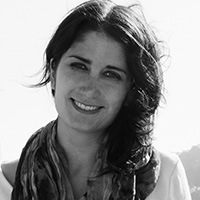 Jacqueline Berkman is a writer living in Los Angeles with a background in publishing and public relations. Her short fiction has also appeared in The East Bay Review.
Jacqueline Berkman is a writer living in Los Angeles with a background in publishing and public relations. Her short fiction has also appeared in The East Bay Review.

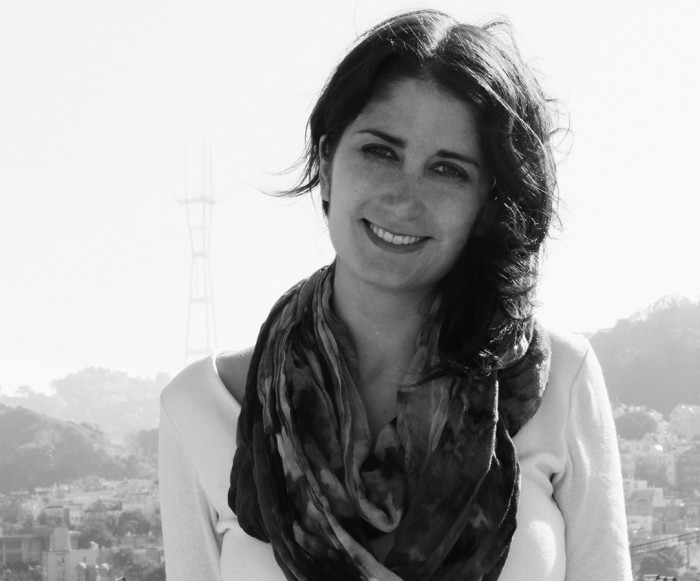
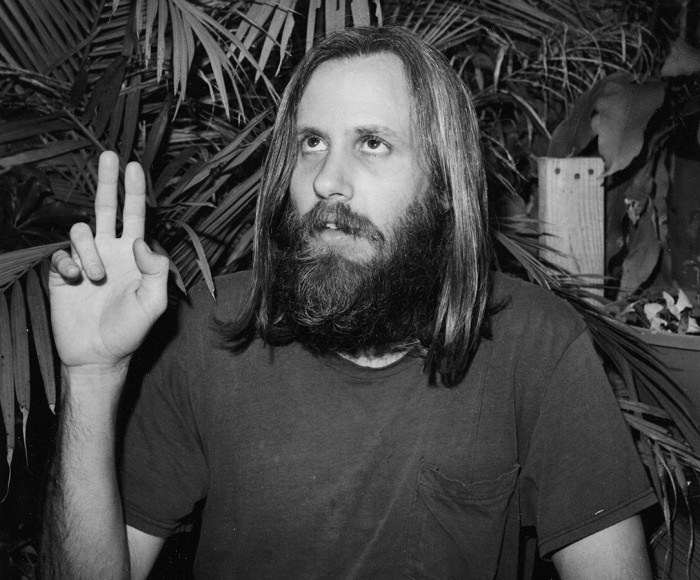
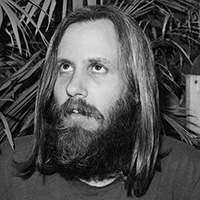 John Oliver Hodges has published two books of fiction: The Love Box and War of the Crazies. He lives in Brooklyn, and teaches writing at Montclair State University in New Jersey. “Ethel’s Mountain” is his second story to appear in The Writing Disorder.
John Oliver Hodges has published two books of fiction: The Love Box and War of the Crazies. He lives in Brooklyn, and teaches writing at Montclair State University in New Jersey. “Ethel’s Mountain” is his second story to appear in The Writing Disorder.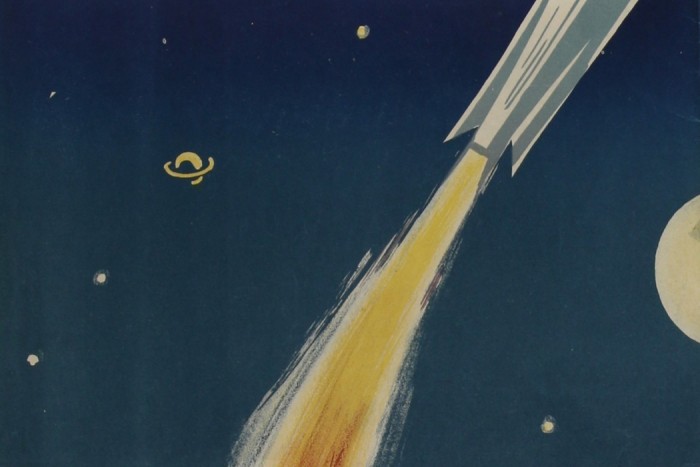
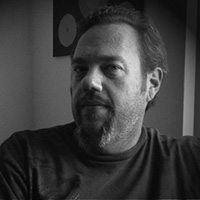 Charlie Brown
Charlie Brown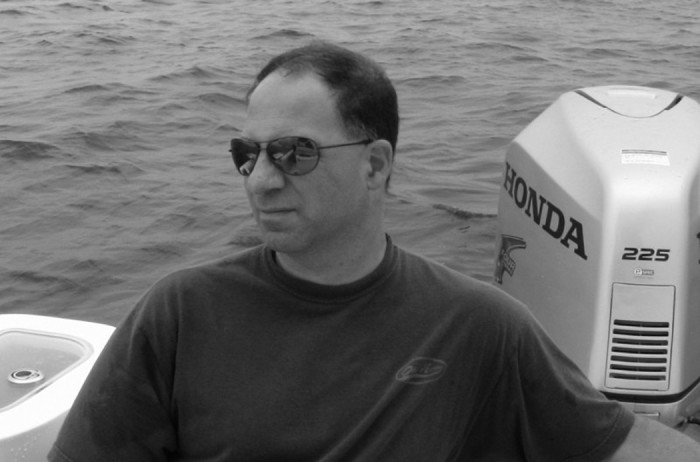
 Lou Gaglia’s work has appeared in The Cortland Review, The Oklahoma Review, The Brooklyner, Prick of the Spindle, Waccamaw, Eclectica, Amsterdam Quarterly, The Hawai’i Review, and elsewhere. His collection of short stories, Poor Advice, will be available from Aqueous Books in 2015, and his story, “Hands” was runner-up for storySouth’s 2013 Million Writers Award. He teaches in upstate New York after many years as a teacher in New York City.
Lou Gaglia’s work has appeared in The Cortland Review, The Oklahoma Review, The Brooklyner, Prick of the Spindle, Waccamaw, Eclectica, Amsterdam Quarterly, The Hawai’i Review, and elsewhere. His collection of short stories, Poor Advice, will be available from Aqueous Books in 2015, and his story, “Hands” was runner-up for storySouth’s 2013 Million Writers Award. He teaches in upstate New York after many years as a teacher in New York City.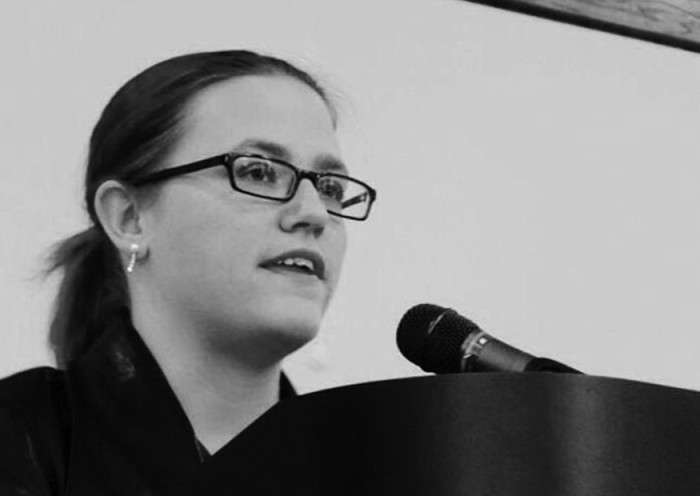
 Clarissa Nemeth is originally from Gatlinburg, Tennessee. She has a Bachelor of Music degree from Boston University, an M.F.A. from North Carolina State University, and is currently a doctoral candidate in creative writing at the University of Kansas. She primarily writes about individuals and communities in Appalachia and the New South and is working on a novel about the tourist towns of Sevier County, Tennessee. She lives in Lawrence, Kansas with her husband Greg and their pit bull, Boogie. This is her first publication.
Clarissa Nemeth is originally from Gatlinburg, Tennessee. She has a Bachelor of Music degree from Boston University, an M.F.A. from North Carolina State University, and is currently a doctoral candidate in creative writing at the University of Kansas. She primarily writes about individuals and communities in Appalachia and the New South and is working on a novel about the tourist towns of Sevier County, Tennessee. She lives in Lawrence, Kansas with her husband Greg and their pit bull, Boogie. This is her first publication.
 Richard Hartshorn lives in upstate New York and earned an MFA from Vermont College of Fine Arts. His work has appeared in Drunken Boat, Split Rock Review, Hawaii Women’s Journal, and other publications.
Richard Hartshorn lives in upstate New York and earned an MFA from Vermont College of Fine Arts. His work has appeared in Drunken Boat, Split Rock Review, Hawaii Women’s Journal, and other publications.











